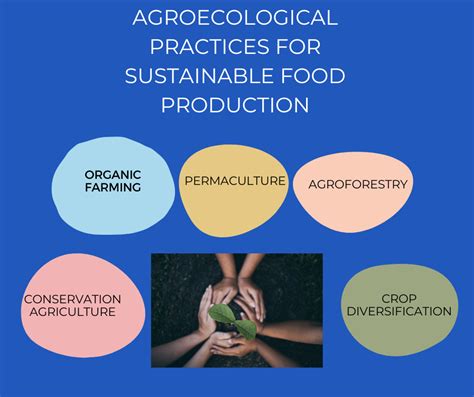The way we produce, consume, and interact with food is undergoing a significant transformation. As the global population continues to grow, the pressure on our food systems to provide sustainable, nutritious, and equitable access to food is mounting. In response, innovators, entrepreneurs, and experts are coming together to shape the future of food tech. One such gathering is the Future Food Tech SF conference, where leaders in the industry share their insights, innovations, and strategies for creating a more sustainable food system.
The food industry is one of the largest contributors to greenhouse gas emissions, deforestation, and water pollution. The production, processing, and transportation of food account for approximately 30% of global greenhouse gas emissions. Moreover, the world's population is projected to reach 9.7 billion by 2050, putting even more pressure on our food systems to produce more with less resources. It is clear that the current food system is unsustainable, and a radical transformation is necessary to ensure a food-secure future.
Revolutionizing Sustainable Food Systems
The Future Food Tech SF conference is at the forefront of this transformation. The event brings together a diverse range of stakeholders, including startups, investors, farmers, policymakers, and industry leaders, to share knowledge, showcase innovations, and collaborate on solutions. From alternative proteins to precision agriculture, the conference covers a wide range of topics that are shaping the future of sustainable food systems.
One of the key themes at the conference is the role of technology in transforming the food industry. Innovations such as vertical farming, lab-grown meat, and precision agriculture are revolutionizing the way we produce food. These technologies have the potential to increase crop yields, reduce waste, and minimize the environmental impact of food production.

Alternative Proteins
Alternative proteins are a key area of focus at the Future Food Tech SF conference. With the global demand for protein projected to increase by 70% by 2050, finding sustainable alternatives to traditional livestock is crucial. Innovations such as plant-based proteins, insect-based proteins, and lab-grown meat are gaining traction, offering consumers more sustainable and nutritious options.
Companies such as Beyond Meat and Impossible Foods are leading the charge in plant-based proteins, creating products that mimic the taste and texture of meat without the environmental impact. Meanwhile, startups such as Memphis Meats and Just are pioneering lab-grown meat, using cellular agriculture to produce meat without the need for livestock.
Investing in Sustainable Food Systems
Investors are also playing a critical role in the transformation of the food industry. With the global food tech market projected to reach $250 billion by 2025, investors are eager to support startups and companies that are driving innovation and sustainability in the sector.
At the Future Food Tech SF conference, investors share their insights on the trends and opportunities in the food tech market. From venture capital to private equity, investors are providing the necessary funding to support the growth and scaling of sustainable food companies.

Policy and Regulation
Policy and regulation are also critical components of the Future Food Tech SF conference. As the food industry undergoes a significant transformation, policymakers are playing a key role in shaping the regulatory environment.
At the conference, policymakers share their insights on the trends and opportunities in food policy, from labeling and certification to trade and taxation. They also discuss the challenges and opportunities in regulating new technologies and innovations in the food industry.
Collaboration and Partnerships
Collaboration and partnerships are at the heart of the Future Food Tech SF conference. The event brings together a diverse range of stakeholders to share knowledge, showcase innovations, and collaborate on solutions.
From startups to multinational corporations, companies are partnering with each other to drive innovation and sustainability in the food industry. For example, companies such as Nestle and Unilever are partnering with startups to develop new products and technologies.

Consumer Engagement
Consumer engagement is also a key theme at the Future Food Tech SF conference. As consumers become increasingly aware of the environmental and social impact of their food choices, companies are responding by developing more sustainable and nutritious products.
From labeling and certification to marketing and education, companies are using a range of strategies to engage with consumers and promote sustainable food systems. For example, companies such as Patagonia Provisions are using storytelling and education to promote regenerative agriculture and sustainable food systems.
Conclusion
The Future Food Tech SF conference is at the forefront of the transformation of the food industry. From alternative proteins to precision agriculture, the event showcases the latest innovations and trends in sustainable food systems.
As the global population continues to grow, the pressure on our food systems to provide sustainable, nutritious, and equitable access to food is mounting. It is clear that the current food system is unsustainable, and a radical transformation is necessary to ensure a food-secure future.
The Future Food Tech SF conference offers a unique opportunity for stakeholders to come together and share knowledge, showcase innovations, and collaborate on solutions. Whether you are a startup, investor, policymaker, or industry leader, the event offers a platform to engage with the latest trends and opportunities in the food tech market.






What is the Future Food Tech SF conference?
+The Future Food Tech SF conference is a leading event that brings together innovators, entrepreneurs, and experts to shape the future of sustainable food systems.
What are some of the key themes at the Future Food Tech SF conference?
+Some of the key themes at the Future Food Tech SF conference include alternative proteins, precision agriculture, policy and regulation, collaboration and partnerships, and consumer engagement.
Who attends the Future Food Tech SF conference?
+The Future Food Tech SF conference attracts a diverse range of stakeholders, including startups, investors, policymakers, and industry leaders.
